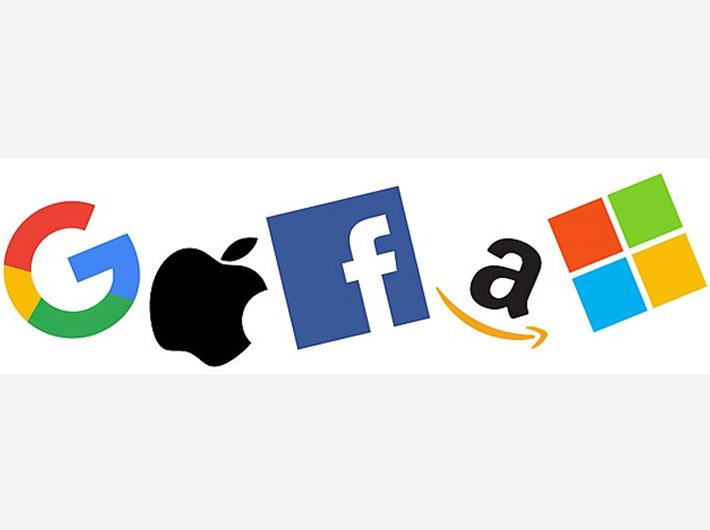A policy analysis concerning antitrust regulation in the digital landscape, and the subsequent requirement for the modernization of monopoly laws
‘A market structure characterized by a single seller, which exerts a stronghold over others in the marketplace.’ Monopolies have existed since markets were created, and they present inherent dangers to the free market. Today, century-old legislation governs digital monopolies. However, limiting vast data-centric corporations like Big Tech to classical business models such as railways is pointless, illogical and often detrimental. There is an immense need for modernization of monopoly laws, a need acutely felt in Big Tech, where a solid framework of legislation supported by law enforcement is required to fix a system that is barely able to support current digital infrastructures.
In today’s heavily monopolistic markets, where suppressing competition and disreputable business practices are the norm, not the exception, we need actionable, pertinent, and timely legislation and enforcement.
The Establishment of Antitrust Laws
The first antitrust law, the Sherman Act of 1890 in the United States, was originally a reactionary measure too late 19th-century industrialization, due to existing perceptions that certain industries had concentrated economic power in a few firms. It was a "comprehensive charter of economic liberty aimed at preserving free and unfettered competition as the rule of trade."
It was also the first Federal Act that outlawed monopolistic business practices, and it signalled the first crack in the unwavering free-market ideologies that had fuelled 19th-century business legislation. Later amendments further strengthened the Sherman Act, revising it so it could be wielded as a policy tool against large corporations.
The ‘Consumer Welfare Standard’
“Consumer welfare” became the governing standard and the only articulated goal of antitrust law in the US following the publication of ‘The Antitrust Paradox’. The consumer welfare standard is oft-used as a buzzword, and it is immensely unlikely the literal interpretation of end-use final consumer price was implied, as that would complicate matters enormously. It is also important to recognize that while price is an important element of competition, so is maintaining competition and innovation.
Recently there has been a shift in the lens with which we view antitrust. The change is because of a shift from a consumer welfare standard to a public interest standard, implying that a lack of competition within itself is damaging regardless of whether it negatively impacts consumers or not.
Cutting consumers out of the equation embodies the true purpose of competition law, not to protect firms but to protect the competitive process. Declining competition is a public policy problem, and must be treated as such.
The Need for Modernization
There is an immense need for modernization of antitrust laws, because of the impenetrability of monopolies and the ineffectiveness of legislation today. There are countless legislative loopholes and fundamental faults in enforcement.
Standards of proof: "In antitrust analysis, it's like if we can't quantify an effect with an economic econometric model to the fourth decimal place it must not be a real harm." - Nancy Rose (Head of the Department of Economics at MIT). This implies that the burden is simply too high on the plaintiff, and needs to be shifted more to defendants to justify their deals. For example, proving that a small nascent competitor would have entered a market without foreign acquisition intervention is almost always impossible.
Brand new technology: How do you regulate a business that isn’t really selling anything? That is the central question policy-makers face when confronted with the paradoxical nature of digital antitrust today. It is crucial to remember Big Tech companies are fundamentally different, in that that they don’t provide a product. They are nothing without their user. Therefore, it takes a huge amount of users to reach the tipping point where digital businesses can begin to generate profit, meaning very few companies are able to rise in the status quo.
Big Tech: A Case Study
In particular, Big Tech is an industry in dire need of modernized antitrust regulation. Consider the first 'Big Tech' case, United States v. Microsoft Corporation (2001), which laid the precedent for today's digital monopolies. The US government accused Microsoft of illegally preserving its monopoly in the personal computer industry, especially by imposing "legal and technological obstacles" on PC makers and customers who wanted to remove Internet Explorer and use other programs. The plaintiffs alleged that by neglecting to integrate other operating systems and web browsers, Microsoft had abused its monopoly authority on personal computers.
Recently, in 2019, the Justice Department began coordinated antitrust investigations into alleged monopolistic practices by Big Tech firms. According to the complaint, Google engaged in a series of exclusionary agreements that cumulatively lock off the key pathways people use to access search engines, and hence the internet.
The investigation into possible anticompetitive behaviour by "market-leading internet platforms" discovered several concerning realities. Despite the fact that the four major companies – Amazon, Apple, Google and Facebook – differ in fundamental ways, there are certain comparable trends in their business methods. Each platform serves as a gatekeeper over a key channel of distribution and by controlling the infrastructure of the digital age, they have been able to spy on other firms in order to eliminate possible competitors.
As these corporations grow progressively more intertwined into the fabric of our economic and political landscape, there are real worries about their abilities to undermine the competitive process. For example, incumbent firms often partake in "killer acquisitions” where they acquire innovative targets solely to discontinue the target's innovation projects and pre-empt future competition.
Google, for example, takes advantage of the information asymmetries it possesses and makes use of the vast amounts of client data that each of its services provides, increasing its market domination. Google is evolving into an "ecosystem of interlocking monopolies" by integrating its services to create a sort of super-monopoly over data, and hence the internet.
Anoushka Jain is a 12th grade student at Delhi Public School, R.K. Puram, New Delhi and has keen interest in Economics and Public Policy.
